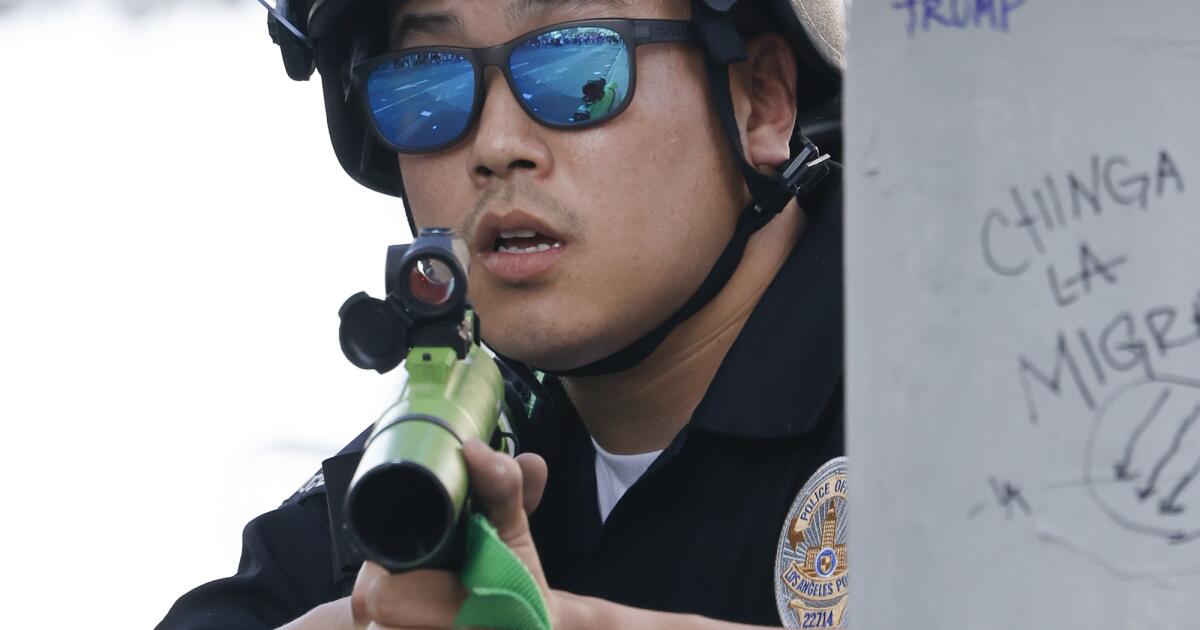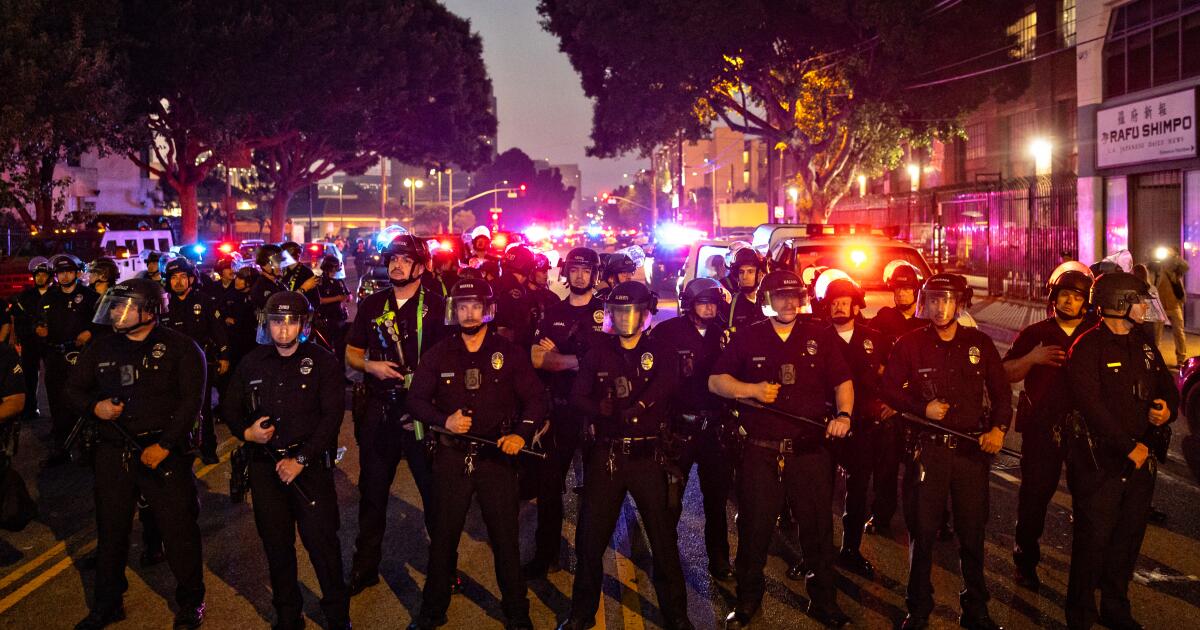Judge orders LAPD to stop shooting journalists with rubber bullets
A federal judge has granted a temporary restraining order that blocks Los Angeles police officers from using rubber projectiles and other so-called less-lethal munitions against reporters covering protests against the Trump administration’s immigration crackdown.
In a ruling made public Friday, U.S. District Judge Hernán D. Vera said a coalition of press rights organization successfully argued that a court injunction was necessary to protect journalists and others exercising their 1st Amendment rights.
The Los Angeles Press Club and investigative reporting network Status Coup filed suit last month to “force the LAPD to respect the constitutional and statutory rights of journalists engaged in reporting on these protests and inevitable protests to come.” The lawsuit challenged the “continuing abuse” by police of members of the media covering the demonstrations.
Vera’s order bars the department from using less-lethal munitions and other crowd-control tools such chemical irritants and flash-bang grenades “against journalists who are not posing a threat of imminent harm to an officer or another person.”
“On some occasions, LAPD officers purportedly targeted individuals who were clearly identifiable as members of the press,” Vera wrote.
The judge cited a June 8 incident at a demonstration downtown where an Australian reporter named Lauren Tomasi was wrapping up a report on live TV, dozens of feet away from a line of officers.
“No protesters are visible near her,” Vera wrote. “Despite this, an LAPD officer appears to aim at Tomasi, hitting her leg with a rubber bullet.”
The judge ruled that the LAPD cannot prohibit a journalist from entering or remaining in protest areas that have been closed off to the public while “gathering, receiving, or processing information.”
The order also forbids intentionally “assaulting, interfering with, or obstructing any journalist who is gathering, receiving, or processing information for communication to the public.”
Free press advocates who brought the suit praised the judge’s decision.
“The press weren’t accidentally hurt at the immigration protests; they were deliberately hurt,” said attorney Carol Sobel. “It’s astonishing to me that we are at the same point with LAPD over and over again.”
City lawyers could challenge the order before the 9th Circuit Court of Appeals.
LAPD Chief Jim McDonnell has said he’s “very concerned” by instances of journalists being targeted by police munitions and vowed each incident would be investigated. He said he did not believe officers were aiming at reporters with less-lethal weapons.
“It is a target-specific munition,” he told reporters at a press briefing. “That’s not to say that it always hits the intended target, particularly in a dynamic situation.”
Vera’s order says that if the LAPD detains or arrests a person who identifies themselves as a journalist, that person may contact a supervisor and challenge their detention. The order also required the LAPD to report back to the court with details of officers being informed of the new rules. The judge set a preliminary injunction hearing for July 24, in which both sides will argue the merits of the case.
The lawsuit accuses the LAPD of flouting state laws passed in the wake of the 2020 protests over the killing of George Floyd by police in Minneapolis, when journalists were detained and injured by the LAPD while covering the unrest.
Apart from journalists, scores of protesters allege LAPD projectiles left them with severe bruises, lacerations and serious injuries.
Under the restrictions ordered by the judge Friday, police can target individuals with 40-millimeter rounds “only when the officer reasonably believes that a suspect is violently resisting arrest or poses an immediate threat of violence or physical harm.” Officers are also barred from targeting people in the head, torso and groin areas.
Times staff Writer Libor Jany contributed to this report.

